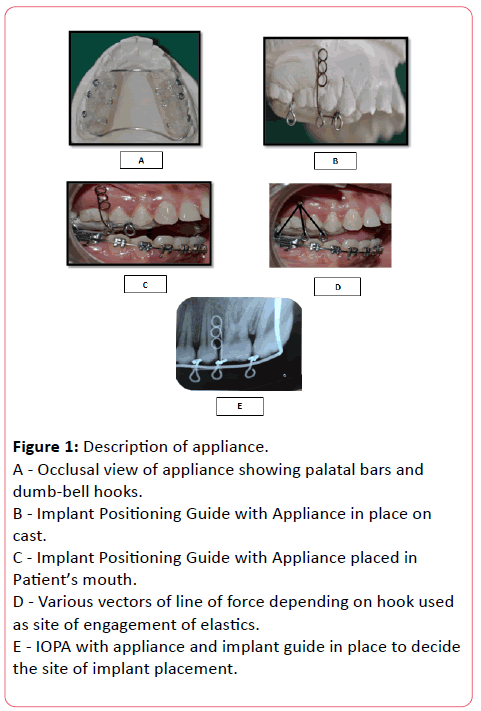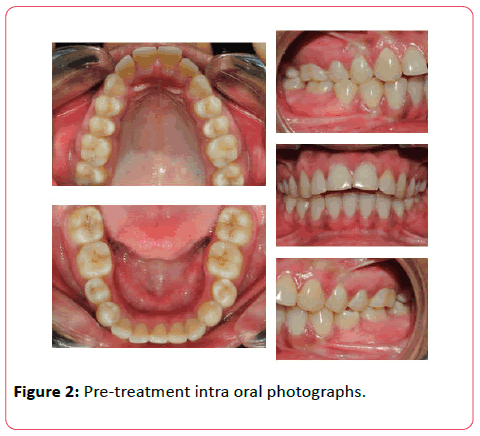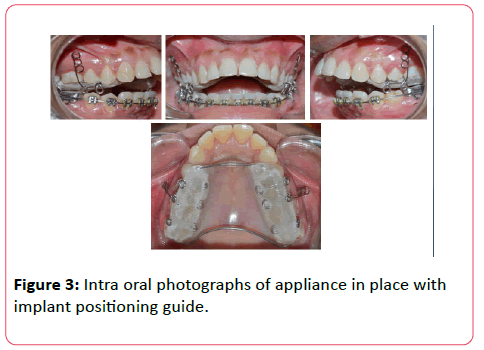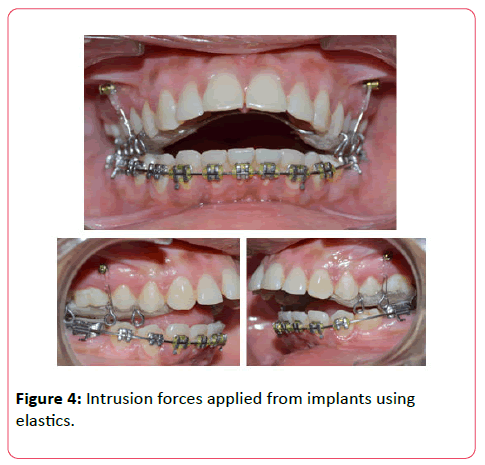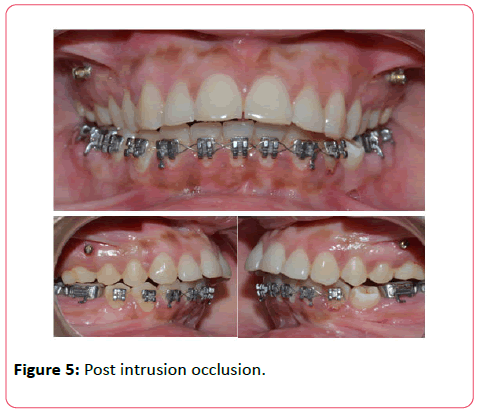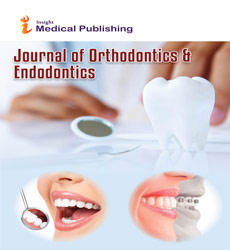Versatile Implant Assisted Bite Blocks
Vishwanath Patil, Charu Deshmukh, Abhishek Bansal and Manjunath Gola
1Department of Orthodontics, HKE Institute of Dental Sciences, Gulbarga-585102, India
2Department of Orthodontics, Vasanth Dada Patil Dental College, Sangli-416306, India
3Department of Orthodontics, Vaidik Dental College and Research Center, Nani Daman-396210, India
4Department of Orthodontics, Al-Badar Dental College and Hospital, Gulbarga, India
- *Corresponding Author:
- Abhishek Bansal
Department of Orthodontics, Vaidik Dental College and Research Center
Nani Daman-396210, India
Tel: +919726779249
E-mail: ashi142002@yahoo.co.in
Received date: February 11, 2016; Accepted date: March 01, 2016; Published date: March 04, 2016
Copyright: © 2016 Patil V, et al. This is an open-access article distributed under the terms of the Creative Commons Attribution License, which permits unrestricted use, distribution, and reproduction in any medium, provided the original author and source are credited.
Abstract
Intrusion of posteriors is a major area of concern for the seasoned orthodontists specially for correction of open bite in hyper divergent growth pattern cases. Performing intrusion of molars tests the skills of even the most experienced orthodontists. To aid in the same, we have designed “Versatile Implant Assisted Intrusion Bite Blocks with Implant Positioning Guide.”
Keywords
Molar intrusion; Implant positioning guide; Intrusion; Long face syndrome; Open bite
Introduction
Intrusion of posteriors for correction of open bite, specially that in Long face syndrome patients is preferred treatment, which tests the skills of even seasoned orthodontists. To achieve this, we have designed “Versatile Implant Assisted Intrusion Bite Blocks with Implant Positioning Guide.”
Appliance Construction
It consists of two acrylic bite blocks connected with two rigid palatal arches (1 mm SS wire) (Figure 1A). Dumb-bell shaped hooks are extended interdentally on buccal as well as palatal side, which aids in positioning the implant guide (Figures 1B and 1C) and later serves as site for force application with different vectors as indicated in patient (Figure 1D).
Figure 1: Description of appliance.
A - Occlusal view of appliance showing palatal bars and
dumb-bell hooks.
B - Implant Positioning Guide with Appliance in place on
cast.
C - Implant Positioning Guide with Appliance placed in
Patient’s mouth.
D - Various vectors of line of force depending on hook used
as site of engagement of elastics.
E - IOPA with appliance and implant guide in place to decide
the site of implant placement.
The implant guide is fabricated using round 0.018 stainless steel wire (A.J.WILCOCK) .It has three helices of 3 mm diameter with a predetermined length of wire which can be secured in the dumb-bell hooks embedded in acrylic (Figures 1B and 1C). With this assembly in situ, a radiograph is taken to decide the appropriate site and corresponding helix for implant placement (Figure 1E) which then is used as a guide for implant insertion.
Versatility of the Appliance
Early active intrusion of posteriors can be initiated even without any fixed appliance bonded in the arch.
Implant assisted Intrusion can be achieved from buccal as well as palatal aspects.
Bite block prevents the reactionary forces e.g. Buccal flaring when the force is applied only from buccal aspect.
Vector of force application can be varied by engaging elastics to suitable hooks (Figure 1D).
Ease of attachment of implant guide without disturbing the existing appliance.
The use of this appliance in our department is the testimony of its usefulness. The photos of an open bite case treated using this appliance is added proof of its use (Figures 2–5).
Open Access Journals
- Aquaculture & Veterinary Science
- Chemistry & Chemical Sciences
- Clinical Sciences
- Engineering
- General Science
- Genetics & Molecular Biology
- Health Care & Nursing
- Immunology & Microbiology
- Materials Science
- Mathematics & Physics
- Medical Sciences
- Neurology & Psychiatry
- Oncology & Cancer Science
- Pharmaceutical Sciences
